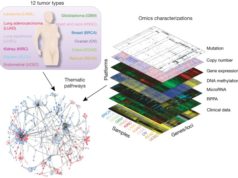It seems that everywhere you look, processed food is calling your name. And although the temptations can be hard to overlook, these particular kinds of food choices can be detrimental to the human body. So, the question to ask ourselves is clear- Is it worth it? Is it worth cancer?
Additives, artificial flavors, and emulsifiers are ingredients commonly found in processed foods; and according to scientists, people that consume excessive amounts of processed and ultra-processed foods are putting themselves at a higher risk of cancer. Ultra-processed foods contain large amounts of monosaccharides (sugar), alkali metal (sodium), and calories.
In a recent study, researches found that mankind consumes processed and ultra-processed foods regularly. This regular consumption, not only leads to becoming overweight and obesity, it is a direct lead to diabetes, blood circulation issues and heart difficulties. A 10 percent increase in the ultra-processed options in a regular diet can constitute an increased risk of cancer, including breast cancer. Additionally, foods that contain processed meats, like mystery hot dogs, can lead to a higher susceptibility to colorectal cancer.
It seems than rather than including healthier food option to our dietary things-to-do list, people are opting for less physical activities, smoking, sugary drinks, fats, and processed sauces; which correlates to the study’s findings.
Tom Sanders, an emeritus professor at the King’s College London and a scientific governor of the British Nutrition Foundation (BNF), calls for a general lifestyle link to what we eat. He believes this link may not increase the risk of cancer. Sanders, who was not a part of the scientistic panel that completed the study, goes on to say that the classification of dietary configurations depends greatly on the food commercial process, in collaboration with disease risk. And he also advocates avoiding any co-factors.
Unlike Tom Sanders, Mathilde Touvier, co-author to a study, said the results are not surprising, and related. The study completed numerous receptive analyses and this changed the results for many co-factors; but the results are still troubling. Processed and ultra-processed food(s) is a fast-growing part of a global diet. In a study completed in 2016, it showed an almost 60 percent of calories found in an average American diet, comes from a different facet of foods. In 2017, another study, highlighted that more than 50 percent of calories are found in the United Kingdom diet and 50 percent of the Canadian diet.
With many other countries starting to eat a more processed diet, it is recommended that the public and surrounding developing countries take on a more healthy and balanced diet. This diet should be based in nutritional products that contain large amounts of fruits, vegetables, grain, and nuts-where allowed. According to Touvier, individuals that maintain a higher level of processed and ultra-processed foods are more likely to consume less foods with a more nutritional value; that can aid in avoiding the cancer link. M. Touvier, emphasis’ the need to check one’s overall diet, rather than specific parts of the whole.
Although, in an animal study it was shown that some additives found in foods are caused by carcinogenic or cancer-causing agents. This was not specifically noticed in the human community.
In the end, it should be a public health announcement to, Eat Healthy and Stay Healthy!


























